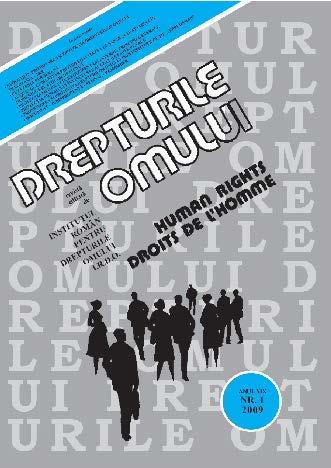Cetățenia europeană
The European citizenship
Author(s): Mihaela-Petruța PanteaSubject(s): Human Rights and Humanitarian Law, EU-Legislation
Published by: Institutul Român pentru Drepturile Omului
Keywords: European citizenry; the right to work; the right to education;
Summary/Abstract: Starting with a definition of the concept of European citizenry and the norms under which it has been instituted, the author makes a detailed analysis of the European citizens’ rights and freedoms, while also presenting the legal texts regulating them. An ample space is further devoted to the free circulation within the European area. The four fundamental freedoms of economic nature stipulated in the EU’s juridical regulations refer, first of all, to the free circulation of goods, services, capital and labour. Thus, the European citizens’ acknowledged right to free circulation, the right to residence and to fix one’s residence, the right to work and to education in any EU member country, are considered to be the core of European citizenry, without which the exercise or other rights granted to the communitarian citizens would be, practically, impossible. The fundamental elements defining the institution of the European free circulation consist of several basic principles: the principle of non-discrimination, the principle of mutual acknowledgement, free circulation of workers, the principle of freedom to fix one’s residence and provide services, which acknowledges the right of a legal person established on the territory of a member country to perform its activities on the territory of another member country.
Journal: Drepturile omului
- Issue Year: 2009
- Issue No: 1
- Page Range: 19-30
- Page Count: 12
- Language: Romanian

